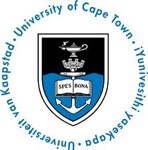Two PhD candidates at the University of Cape Town (UCT) have focused their respective research theses on decision making models and methods that improve workplace environment.
Jean-Michel Jaquet's PhD thesis, "A non-linear approach to modelling motivation in the workplace using artificial neural networks", examines methods of engaging employees in the workplace. The thesis explores how an understanding of human evolutionary psychology and neurology - with a view of organisations as complex non-linear systems - can be combined to present an approach to workplace motivation that better enables an engaged workforce.
Looking at what motivates a variety of professionals, including business managers, entrepreneurs and creative artists, Jaquet's research tests the theory that a non-linear approach to modelling workplace motivational systems may be useful in accounting for and responding to some of the diversity that exists within the motivation of working professionals.
Techniques assist to understand customers
"In a business context, one could use these techniques to better understand the motivations of employees or customers - and design targeted interventions to address those - rather than the sort of broad generalised principles that we often try to follow today," Jaquet said.
His findings show that artificial neural network clustering does identify distinct outlying patterns in the motivations of sub-groups of individuals within different professions. This type of research provides opportunity for organisations to dynamically gauge the motivational needs of a given organisational system.
Victor Katoma's thesis examines performance expectancies and individual motivation that leads to discretionary effort within team members of professional networks. The thesis looks at factors that encourage discretionary behaviour as part of business-value creation and a performance enhancement strategy within an organisation.
Self-affirmation helps in decision making
In his paper, "A framework for discretionary effort based on performance expectancies in integrated work environment", Katoma finds strong evidence that self-affirmation, which builds self-image in integrated work environments such as professional networks, helps in decisions and decision making that is discretionary.
Using multilevel statistical analysis, he further demonstrates that individual discretionary behaviour at the micro level, in clusters of units of employees, was significantly influenced by factors such as experience. This was, however, not the case with variables such as gender and sector of employment.
The research further highlights that in a broad context of integrated work environments, individual network learning, team sustainability, effort learning, interpersonal performance and mutual reciprocity were the causes of variability in discretionary behaviour. This suggests that discretionary behaviour, just like knowledge, is socially constructed and contextual.


































